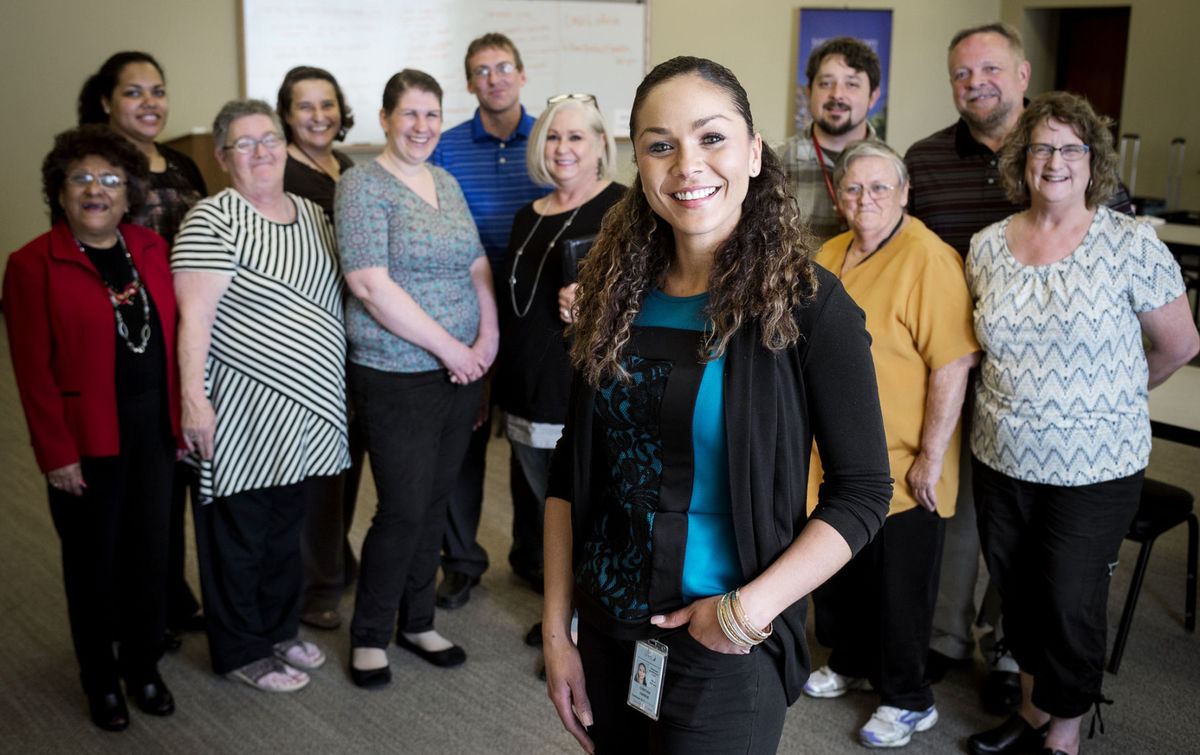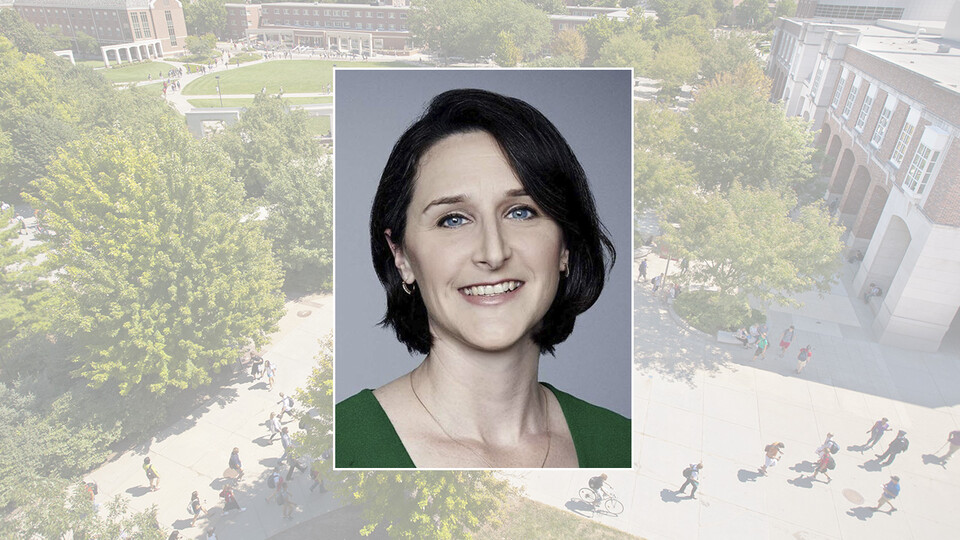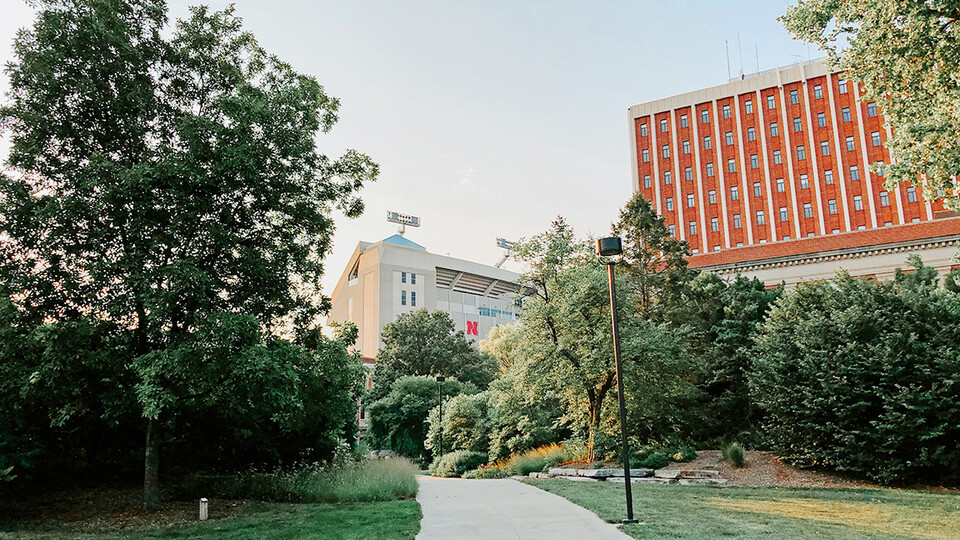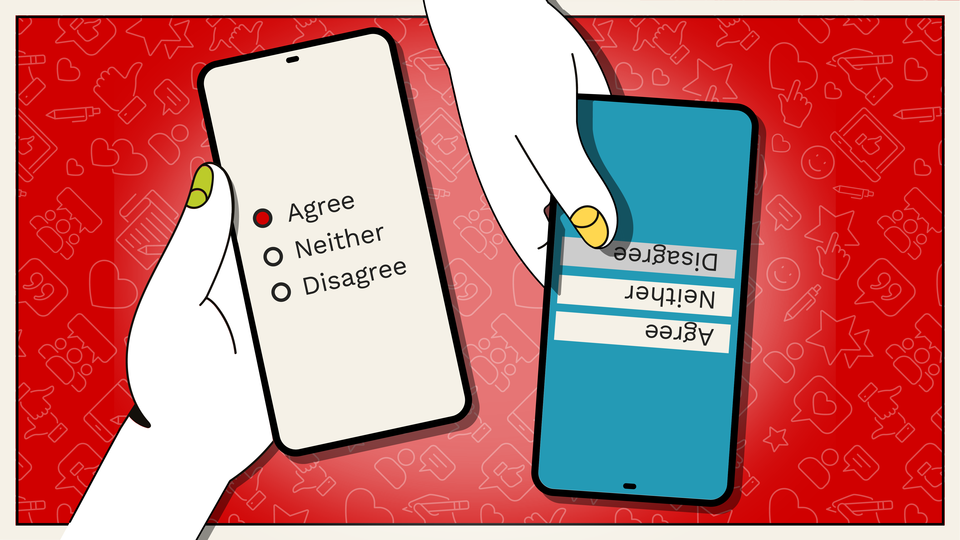
Her mother told them they were going camping.
They left California in the dark, and when the little girl and her sisters woke up their mother told them the truth.
“She said, ‘We’re moving to Nebraska.’ And that’s how I got here,” Cynthia Harris says.
That was the year they lived in their car and in homeless shelters and on couches with people the little girl didn’t know.
The year their father left El Cajon and came to Omaha searching for them. The year the police came knocking on the door and took them away.
The year Cynthia was a 7-year-old named Cindy.
She began using her given name when she started college, she says.
Cynthia sounded more grown up. It fit the honor roll student from Lincoln North Star, mature beyond her years.
Harris is still in college nearly a decade later, working on her second master's degree.
She’s a mom now. A new homeowner. A young woman with a grownup job -- administrator of the Office of Consumer Affairs at the Nebraska Department of Health and Human Services’ Behavioral Health Division.
The wordy title was announced by the state last week, moving Harris, 28, up from interim director, a title she’d held for eight months.
“My experience with poverty, childhood abuse and neglect, foster care system, domestic violence and trauma have had a significant impact on my life,” Harris said in a department news release. “These experiences drive my passion to serve others.”
She’s not reluctant to share the bones of her story in print, she tells me, although there are pieces she wants to keep from public consumption.
In a more private setting -- as a boss and a mentor and a woman with a passion for people who’ve been where she’s been -- she shares the more intimate details, anything that will help her connect and take away shame or stigma.
But her focus is on the good. On eliminating labels and on finding the resiliency inside us and the power of hope.
Even though her childhood was filled with struggle, she doesn’t blame her parents.
“My mom was a survivor of extreme childhood abuse and trauma. She endured so much I still don’t know how she’s standing to this day.”
Her father was a disabled Vietnam veteran who had his own demons after returning to a society that rejected his service.
“He’s one of the strongest men I know, and he is my hero.”
But her parents needed help -- and so did Harris and her siblings.
“We were basically a family of people who fell through the cracks.”
And when the police came for her and her sisters and they were dropped into foster care, they didn’t always get what they needed.
“It was scary for us. The things I would do for my own child, I didn’t see that.”
She wanted her mom and dad.
She took on the role of parent for her younger sister as they traveled from placement to placement -- or back home, only to be removed again -- all of their belongings stuffed in a garbage bag.
She has trouble now remembering the details, the sequence of things, the faces and names of the people who took them in.
“It was survival. All I remember is there was so much instability and a complete lack of a sense of control.”
Harris wants to be a part of changing that for children and for parents struggling with addiction or mental health issues.
Her boss believes she will.
“She has a great talent to really bring people together,” says Sheri Dawson, director of Behavioral Health at DHHS. “I’m confident she’s going to do a great job.”
Harris is ready to “serve the people of Nebraska,” she says. Consumers of mental health and substance abuse programs, people involved in the criminal justice system, foster kids and foster families.
“There’s a lot we can do in terms of preventive measures. Meeting people where they are instead of letting our young people fall through the cracks.”
She’s not sure, exactly, why she didn’t fall.
Why she excelled in academics, a high-achieving honor roll student and athlete who went onto college and graduated in four years and enrolled in a master’s program, doing homework in the hospital in between nursing her newborn son.
“I struggled in college to learn the lay of the land,” she says. “I knew there was a greater plan for me.”
Lisa Bickert watched Harris grow up, a second daughter to her, determined and strong spirited.
“What I see and know is that she has the strength of a mature woman,” Bickert says. “She turned her life into something different than it could have been.”
She turned her life over to Christ, Harris says.
She went to work for the Friendship Home. She went to work for the state, a specialist in the Behavioral Health Division. She connected with children she met.
She remembered when she was that child. In a strange house, in a strange bed, crying, a kid not wanting to live if this was all life was.
“The weight was just so heavy that the thought of closing my eyes and never waking up was better.”
She also remembers this: “Waking up crying and sobbing, telling myself I want to make it better for other kids.”
And now, this opportunity.
“It’s a true, true honor to be selected, I wish words could describe it.”
And then she finds the words.
“I want to help people have a voice and be connected and not be alone.”
“I want them to know recovery is possible and there is a tomorrow and there is hope.”
“I want them to heal and then go help others.”
Reach the writer at 402-473-7218 or clangekubick@journalstar.com.



